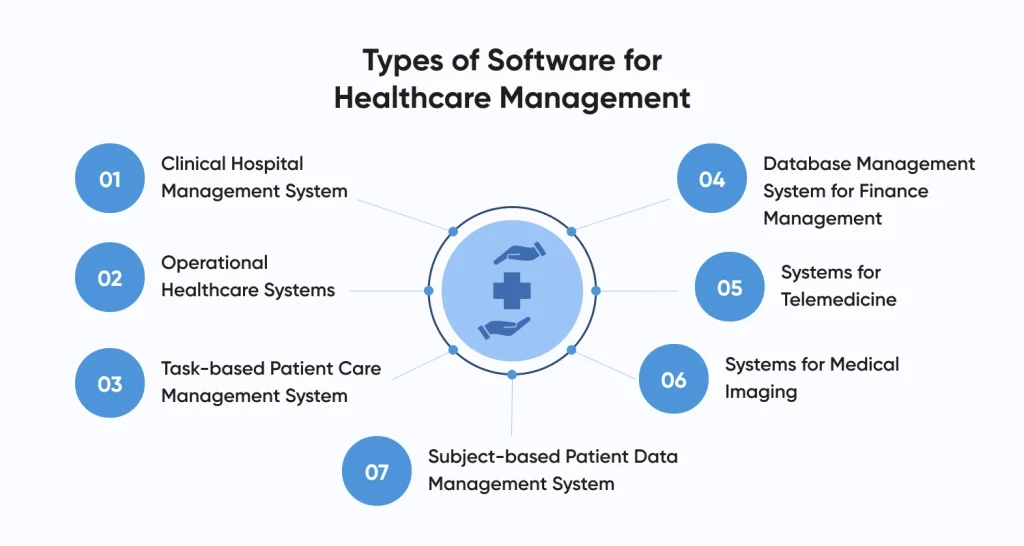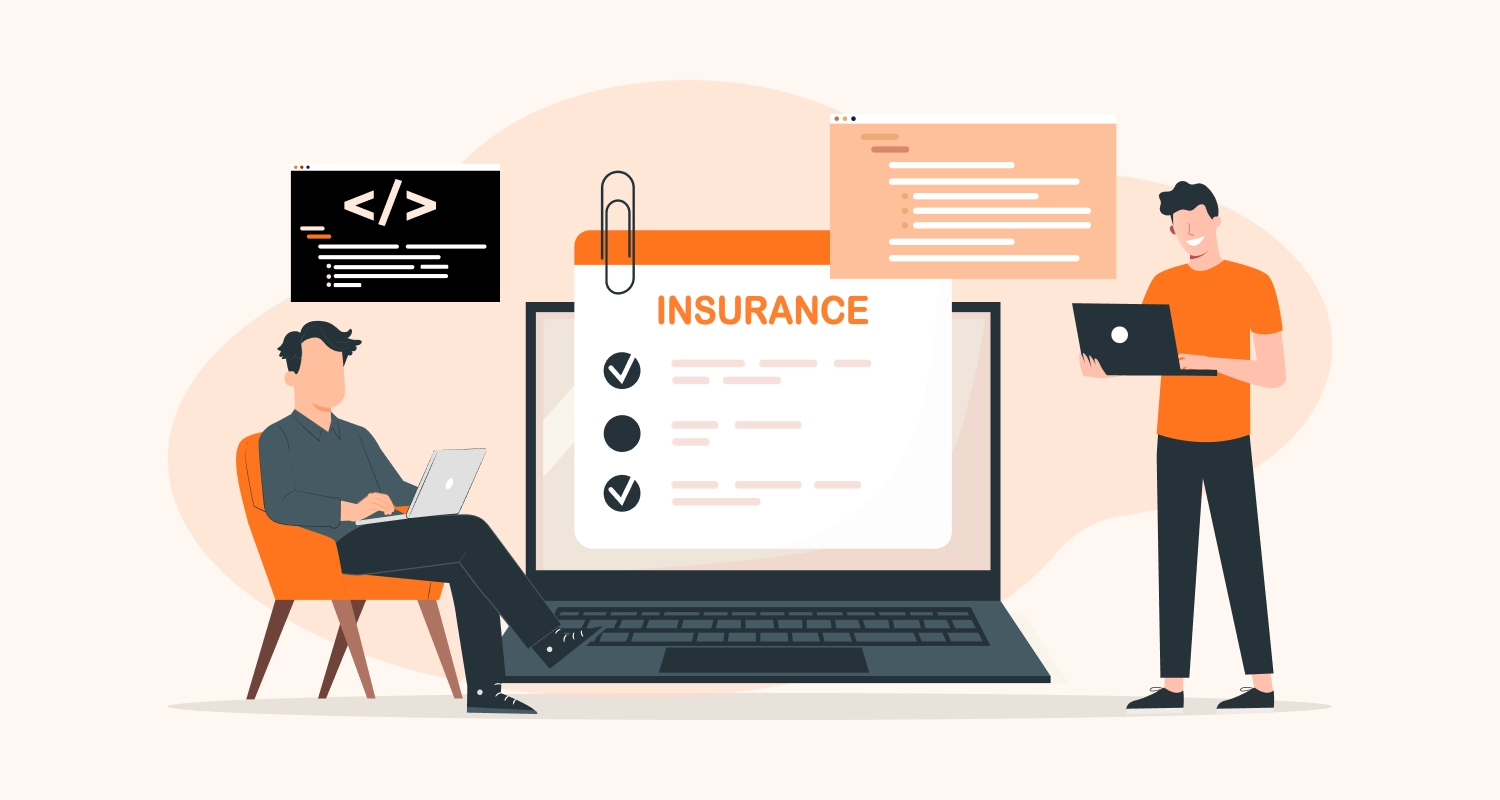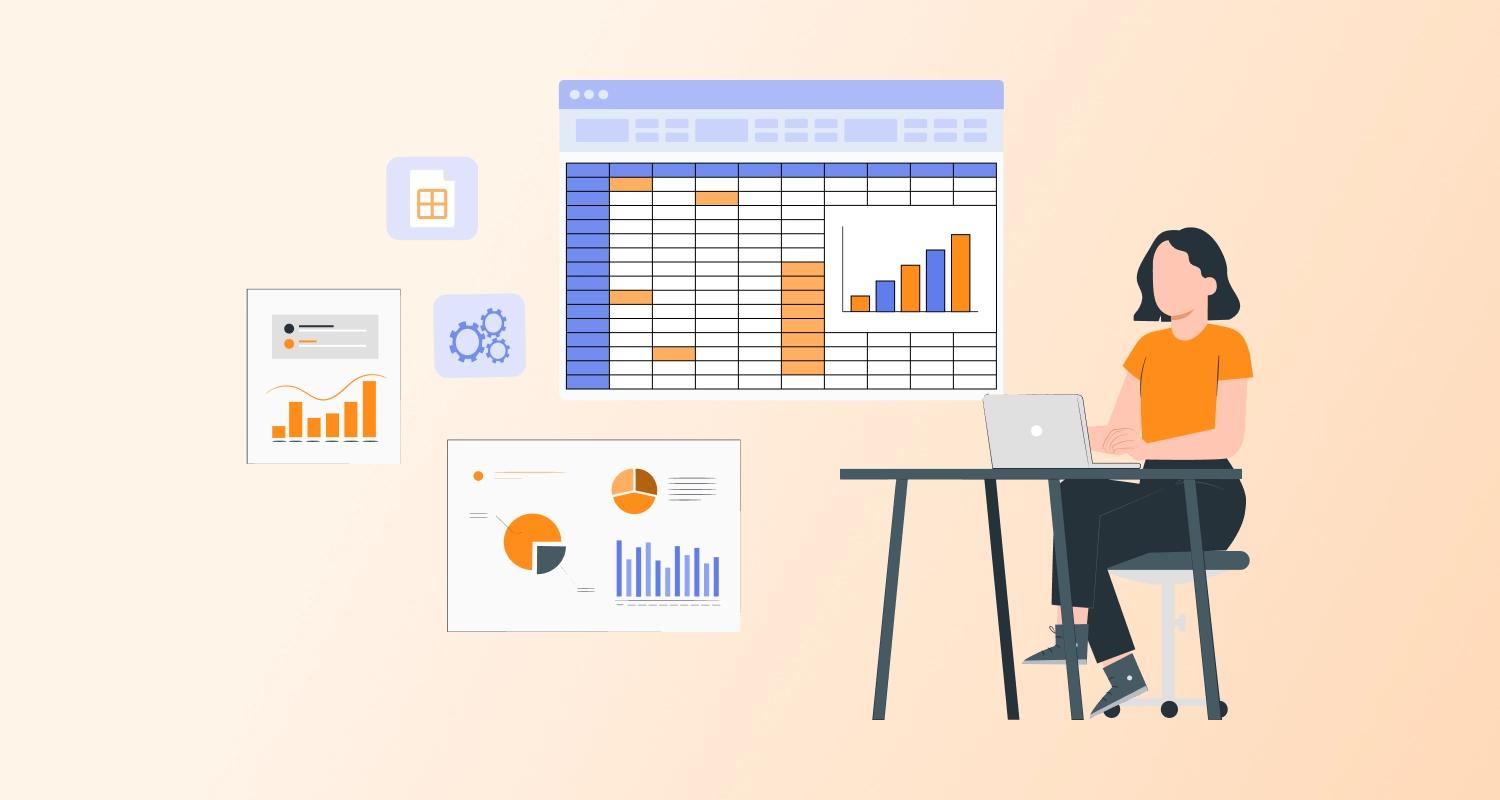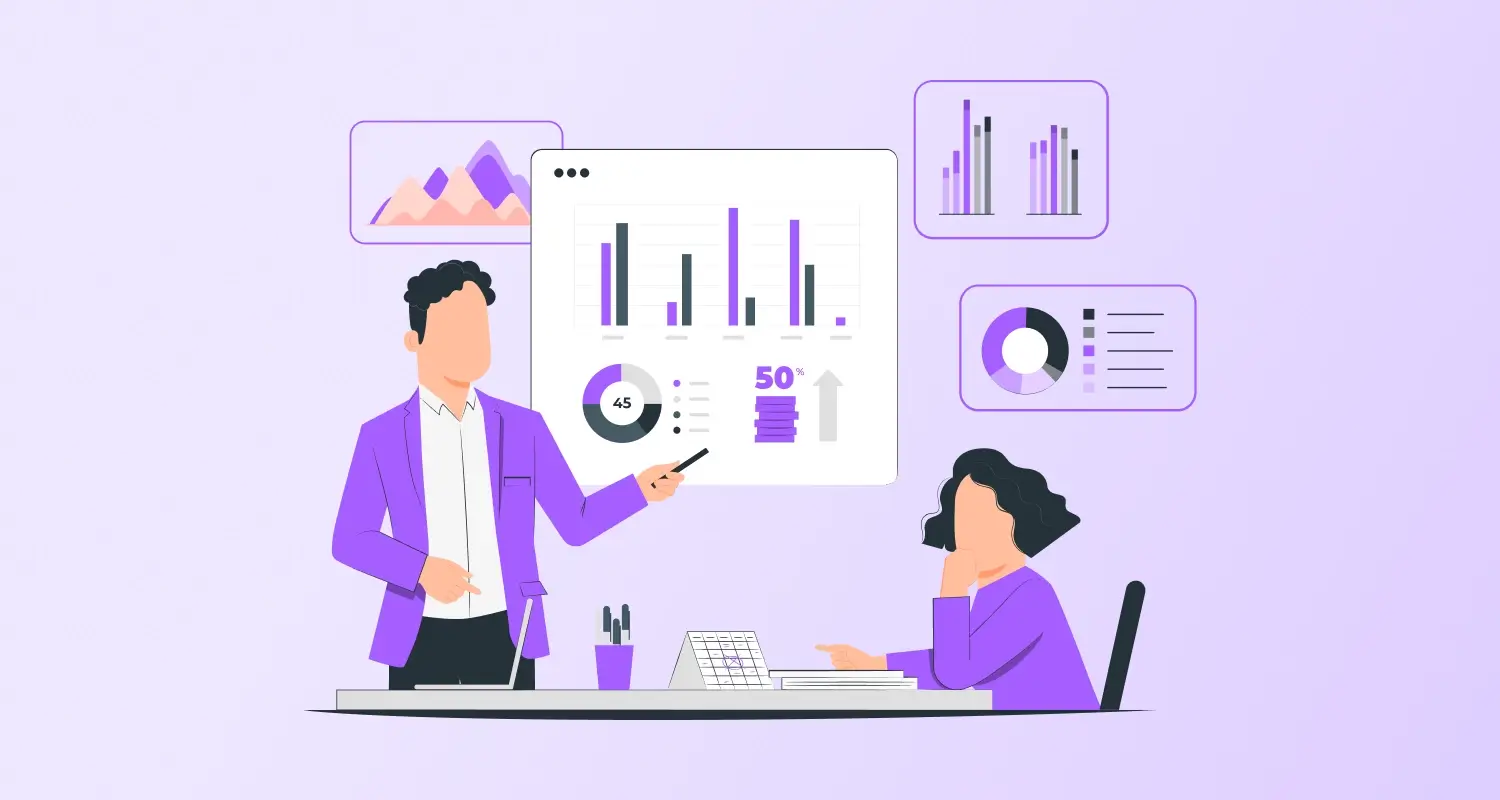The breakdown of the worldwide healthcare system occurred during the COVID-19 pandemic. Hospitals increased their expenditures on hospital management systems during this turmoil. As a result, hospital management system costs were predicted to exceed $250 billion shortly, and telehealth usage increased to nearly 78 times the level of the pre-COVID era.
Since then, the number of hospital management software applications employed by the global healthcare industry has increased dramatically. To improve the end-to-end healthcare experience, we will examine the various aspects of hospital management system development in this blog. Also, in the end, you can easily connect with the healthcare software development company to develop a smart healthcare app for your buisness.
What is Healthcare Management Software?
A study found that doctors squander patients’ time by processing paperwork, which takes up half of their time. Hospitals will always have paperwork, but automated systems and processes can lessen the workload for physicians and other medical personnel. Computer-based solutions are useful for managing operations and procedures in hospitals. The healthcare management system, sometimes known as the hospital management system (HMS), is the name of this system.
Throughout the hospital, medical staff may safely gather, store, retrieve, and communicate patient data thanks to a hospital administration system. It facilitates more effective processing of medical records and improves patient care. To help doctors, lab technicians, nurses, and other medical professionals get the information they need quickly and make informed decisions, it offers an ecosystem of software tools and applications.
What are the Benefits of Hospital Management Software?
Hospital management systems serve healthcare organizations in many ways, from efficient administration to expedited patient care.
Lower Workload and Expenses
Hospital management systems reduce costs and simplify administrative tasks by allocating resources optimally.
Improved Quality of Patient Experience
Personalized care and reduced wait times are the results of seamless digital processes, which raise patient satisfaction.
Security of Patient Data
Strong access controls and encryption guarantee that patient data is kept private and complies with healthcare laws.
Simplified Procedures
Improved patient outcomes and faster diagnosis and treatment are fostered by effective departmental collaboration.
Automated Reporting and Advanced Analytics
Healthcare app development provides automated reporting and data-driven insights to support regulatory compliance and well-informed decision-making.
Less Medical Errors
Implementing electronic health records, standardizing procedures, improving staff training, promoting open communication, and utilizing technology like barcode scanning for medication administration are all ways to lower medical errors.
Reduced Rates of Rehospitalization
By using proactive healthcare apps and predictive analytics to identify at-risk patients, readmissions are decreased.
Centralised Administrative Control
Optimizing resource allocation, facilitating compliance, and enhancing overall healthcare administration are all made possible by unified control over operations.
Types of Software for Healthcare Management

To manage the numerous aspects of hospital operations, specialists use hospital management software with a variety of functions. For healthcare web development or app development, you can choose administrative personnel to use a Practice Management (PM) system to handle billing, scheduling, and other administrative tasks. Nevertheless, doctors utilize an EMR system mainly to keep track of patient medical data.
Explore the various hospital management categories and applications, each designed to meet certain healthcare requirements and enhance operational effectiveness.
Clinical Hospital Management System
Reports, statistics, and patient data are all contained in the hospital patient management system. A thorough report is produced once the system has received patient data. Hospitals can also view statistics about illnesses, discharges, attendance, etc. using the same healthcare technology trends.
Operational Healthcare Systems
The categorization of medical data is the source of these hospital management system advantages. They provide quick, accurate, and consistent data to the hospital staff. Having organized data makes it easier for hospitals to provide high-quality work internally and while interacting with patients.
Task-based Patient Care Management System
One of the advantages of a task-oriented hospital management system is that it allows staff members to assign and prioritize jobs according to the needs of the hospital. The main focus of these systems is to segregate certain tasks, such as hospital admission, discharge, operation room transfer, etc.
Subject-based Patient Data Management System
Digital patient data storage is the purpose of an around-the-subjects hospital management system. These systems are used by hospitals to organize and keep track of patient medical histories.
Database management system for Finance Management
The hospital’s financial records are monitored by the use of these patient management systems. They help hospitals manage their budget by keeping an eye on revenues and expenses and working around cash and waste receipts.
Systems for Telemedicine
It allows doctors to treat and confer with patients from the comfort of their homes or other remote locations. Pharmacy operations such as prescription processing, medicine dispensing, and hospital inventory management are managed with the help of pharmacy management systems.
Systems for Medical Imaging
It is an image management, storage, and analysis system for medical pictures, such as MRIs, CT scans, and X-rays.
After discussing the types of hospital management software, let’s go on to talk about its key components.
3 Key Clinic Management System Features You Should Know
A hospital management system is constructed utilizing several modules, each of which focuses on a different stakeholder. To put it briefly, you invest in three applications instead of just one when developing a hospital administration system. Hire healthcare app developers to imbibe all the below features in your app to enhance the doctor-patient communication and ease of the healthcare management system.
Let’s examine the feature set that each of the three modules has.
Software Features for the Hospital’s Patient Side
Signing up
The essential component of an HMS streamlines the registration procedure for patients upon walk-in or online appointment scheduling. Healthcare personnel can easily add inpatient details with the help of inpatient management software by using this option.
Insurance Integration
The idea behind this function is to centralize patient insurance information. This streamlines the claims process and gives them access to real-time information about which treatments are covered by their plan.
Invoicing
The ability to pay bills is a feature that is usually included in every mobile app for hospital management systems. Patients can use it to pay bills, view their billing history, communicate information with their insurance company, and make notes about future payments.
Notification
With an emphasis on patient involvement, the push notification tool assists patients in staying informed about important dates and reminders such as prescriptions, test results, forthcoming appointments, and doctors’ availability for teleconsultations.
In-app Assistance
With this function, users can get in touch with the hospital administrator directly from the healthcare app if they have any questions about their care or how the software is being used.
Smart Billing System
The patient’s involvement in the payment process is typically ignored by companies offering medical app development services. Several healthcare system bottlenecks are eliminated, administrative and manual labor is decreased, and the medical enterprise’s credibility is enhanced by a variety of sensible and practical payment options.
Another vital function is insurance eligibility verification, which keeps track of the services covered by the insurer and whether it has expired. The RTE patient eligibility method is used by the medical billing management system.
It enables one to quickly determine whether an insurance business complies with the law by digitally checking the status of a patient’s insurance. Additionally, a provider of Artificial Intelligence in the healthcare industry that offers high-end AI services can create a chatbot with AI assistance that can quickly respond to patient inquiries, saving important time.

Doctor’s Side Features
Patient management
One of the most important components of a hospital management system is this. Doctors can access patients’ situations, view their data in real-time, and make sure they receive therapy on time thanks to it.
Laboratory Management
Doctors can now obtain lab results without having to walk to the lab thanks to this innovation. As soon as the reports are available on the hospital administration software, they are sent to them immediately.
Virtual Patient Care
Virtual patient care is the next essential component of a hospital management system. Regardless of the time of day, the software should allow doctors to communicate with their patients in real-time.
Electronic Medical Record
An electronic health record system that is secure should be part of the hospital administration software for doctors.
Hospital Side Features
Employee Supervision
The management of physicians and personnel is a crucial component of hospital management system software. It assists in making sure that employees are punctual, that their work is well-organized, and that all relevant procedures are being followed.
Finance management
When developing a hospital management system, this is yet another crucial factor to take into account. Hospitals can keep track of all of their income and outlays, unpaid invoices, salary disbursements, and more thanks to this functionality.
Inventory Control
With this functionality, the hospital personnel can monitor all of the inventories, including furniture, equipment, and medications.
After looking at the different kinds and features of doctor and patient information management systems, it is important to remember that these characteristics can only provide the desired results if they are supported by the appropriate technology stack.
Cost to Develop Hospital Management Software
Several aspects determine how and how much to design a hospital management system.
The hospital information management system’s features
- Integrations of software and technology stack
- The size of the development team
- Development model: location and internal vs. outsourcing
Although we have already examined the features and technological stack, we won’t be discussing software integrations in this post because the needs of the project will mostly determine whether or not to use cutting-edge technologies like blockchain or artificial intelligence in healthcare. Furthermore, depending on the size of the program’s application, it would raise the ultimate hospital management software cost throughout a broad range.
A healthcare management system’s development typically costs between $50000 and $100000 USD. It may, however, differ depending on several variables, including functionality, complexity, third-party integrations, and more. Moreover, hospital software is available in a variety of forms, and each has unique advantages. Thus, the kind of software you select for your company will also affect how much a software system costs.
How CMARIX can Assist You with Developing a Hospital Management System?
CMARIX is a well-known international solution supplier with a focus on developing software for hospital administration. We offer specialized solutions to improve the efficiency of your healthcare business. Our specialty is providing digital transformation services, which help healthcare organizations smoothly enter the digital era.
Utilizing cutting-edge technologies and industry-specific compliance standards like HIPAA, CMARIX guarantees patient data security and effective administration by keeping a close eye on industry-specific requirements. Our cutting-edge software solutions enable healthcare facilities to simplify administrative procedures, optimize resource allocation, and improve patient care.
Join together with CMARIX to get a complete hospital management system that supports operational excellence and complies with the particular needs of your organization.
Conclusion
The field of modern healthcare is about to become fully computerized. The area is about to enter a state in which clinics, physicians, and patients are all seamlessly integrated. Developing a hospital administration system is one method to make sure you are a part of it.
Although the article guided you through the many aspects of the development process, you would need to collaborate with a team that specializes in HMS-based healthcare software development services to build the software.
At CMARIX- the best hospital management software, we’ve collaborated with a variety of hospitals to link and streamline their isolated procedures by bringing together all the relevant parties, including the administration team, physicians, patients, and staff. Our attempts to develop software that promotes patient interaction have produced improved results.
Frequently Asked Questions
What Tech Is Used for a Hospital Management App?
Hospitals use a variety of software applications to improve patient care. Medical research software intended to instruct medical staff members, hospital database management systems, and Electronic Health Records (EHR) housing all vital patient data are among them.
What Are the Key Factors Affecting the Development Timeline of Hospital Information System Software?
The acceptance and effective use of hospital information systems is largely dependent on human factors, followed by technology considerations, organizational and managerial factors, and so on.
What Are the Key Cost Factors in Developing Hospital Management Software?
The cost of developing a healthcare management system is dependent on several factors, including the following:
The hospital information management system must have certain features.
Technology stack in use
Need for software integrations
The development team’s location, size, and level of experience
Development model: internal versus external A basic app’s development costs range from $50,000 and $100,000 USD. The cost of development will go up if cutting-edge technology like artificial intelligence is used in the healthcare industry.
How Does CMARIX Secure Patient Data in Hospital Management App Development?
Through encryption, access controls, and compliance with HIPAA (Health Insurance Portability and Accountability Act) requirements regarding healthcare data, CMARIX guarantees security and privacy. Compliance with the General Data Protection Regulation (GDPR) and routine security checks in the creation of hospital management applications.







